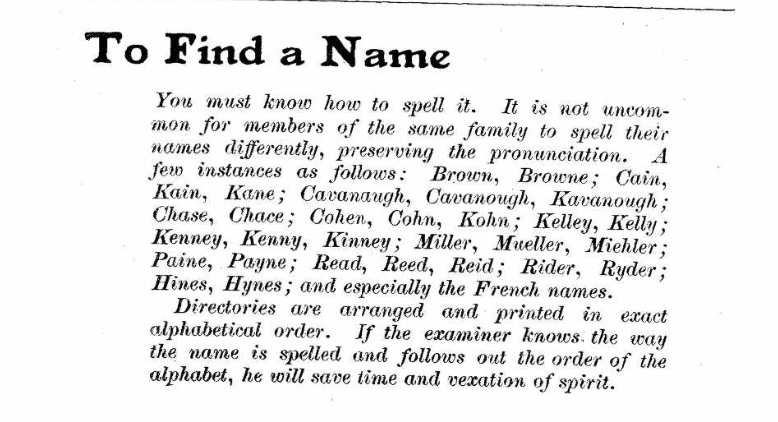I have been tracing my family history (Orman)and have found a switch to my GGG-Grandfather (Orman) from GGGG-Grandfather Ormand.Does anyone know why and when the name was changed?
2 Answers
Legal requirements for name changes, which might generate records about it, will vary depending on locality. See my answer to this question Name Changes in New York City during 1830s? for some examples.
"Correct spelling" is a 20/21st century idea. In previous eras, surnames can be spelled inconsistently even within the same document. For genealogy, another consideration is that few of the records we use except for diaries and documents bearing signatures have names written by our ancestors and relatives. Clerks and enumerators wrote down the names, and wrote down what they heard, sometimes with hilarious results. My personal favorite is from an English census where the enumerator wrote down an entry for a person born in Chipstable, Devon as having been born in Chips Devil. Historical linguists use these examples as clues about how people spoke at the time the record was created.
Ancestry's Name Meaning article for the surname has Ormond as the main spelling, with Ormand and Orman as variants (for Irish). Each article has a list of "Similar surnames". Their pages cite the Dictionary of American Family Names (2013) published by Oxford University Press.
You may want to standardize the surname in your own genealogy software for convenience, but it is helpful to record the surnames as they appear in the records, and the surnames as they are mis-indexed by volunteers or in the indexes of the computer databases on sites like Ancestry, so you can use them to search for records you might have missed by insisting on a "correct" spelling. I missed finding my own father in the census because I used our modern spelling in the search and not the spelling variant the census enumerator had used. When I decided to browse the census to find them instead, his family was on the very first page.
You may not be able to answer the question of "why the name was changed" but if you can find either court records of name changes, legal notices in newspapers, or signatures on documents, you may be able to answer the question of "when the name was changed". Your own question answers the question of when: you told us it happened in between your 4g-grandfather's generation and your 3g-grandfather's generation.
From a linguistics POV, we might guess that over time the switch in spelling from Ormand > Orman means that the final consonant was silent, so that clerks unfamiliar with the name didn't write down the final letter.
We can see that surname spelling was still fluid by the early 20th century by advice like this:
The above screenshot is from James T. Larkin's North Adams, Massachusetts, City Directory (1907) page 42, as seen via their database U.S. City Directories, 1822-1995.
It is not uncommon for members of the same family to spell their names differently, preserving the pronunciation.
I do not have any Ormand/Orman ancestors myself but I have a similar thing in my Billing/Billin ancestors where they appear to have almost always ended their surname with a "g" up until about 1836, and from then on never with it.
I suspect that they tired of always writing the last letter and/or tired of having to include the last letter whenever they spelled it for someone else to write.
Perhaps something like this happened for your Ormand/Orman ancestors too.
Rather than try to explain why the spelling changed I simply take note of when they used the longer and shorter spellings.
